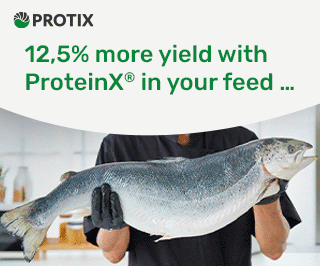A broad Brexit “agreement” Monday on pre- and post-Brexit business dealings has been mostly applauded by the traditional proponents of British enterprise, although Scottish parliamentarians thinking salmon and Scotch appear to have moved past Brexit to ply future trading partners.
The British Chambers of Commerce on Monday issued a statement on what’s being called the “status quo” or “business as usual” Brexit deal hammered out over the weekend by EU and UK negotiators.
“The political agreement reached in Brussels is sufficient for most businesses to plan ahead with a greater degree of confidence,” BCC director general, Adam Marshall, said in a statement.
“The agreement of a status quo transition period is great news for trading firms on both sides of the Channel, as it means that they will face little or no change in day-to-day business in the short term,” he said.
Read Scottish seafood exports face “devastation”
Read Scots’ Brexit worries pile up
The deal — hammered out by UK Minister David Davis and his European Union counterpart, Michel Barnier — allows businesses to continue operating, as usual, until 2020, or around the time when a number of EU-UK funding arrangements run out. While both the UK and the EU have made October 2018 their deadline for achieving Brexit, it was finally acknowledged that most of a Draft Brexit Treaty from two weeks ago could be agreed, and that the detail could be ironed out once the UK has taken itself officially out of the EU.

Aquaculture
A key fear of Scottish salmon growers and, especially, seafood processors, was that they would immediately loose much of their 18,000-strong workforce, as foreign nationals became more foreign under post-Brexit UK immigration rules.
“Businesses across the UK will be particularly relieved that they will be able to hire and retain European nationals on similar terms over the next two years, given the significant skills gaps they continue to contend with,” a statement from the BCC said.
Workforce
Though seeming relieved, the Chamber admitted that free-trade deals might now have to be negotiated on a country-to-country basis existing trade partners. That, however, might rankle an EU keen to keep member “discipline” on foreign relations.
The goal of individual treaties with member states is now “the top priority”, the BCC said. Post-Brexit, it appears the only way to maintain existing market access, Marshall said.
To that end, Scottish parliamentarians were already in France over the weekend, and on Monday were promoting good old-fashioned bilateral ties. External Affairs Secretary, Fiona Hyslop, said she was in France to “build stronger connections”, just as EU-UK delegates worked on Brexit details.
Zero-tariff
Meanwhile, the European Council must still approve Monday’ announcement. The current zero-tariff agreement is “a no-brainer for both sides,” Marshall said, adding that more clarity was still needed on customs.
With that in mind, Hilary Benn — the UK Parliament’s Brexit Committee Chair — was to put “an urgent question” to Parliament on customs arrangements and UK ports at 4 p.m. London time.
Aqua-funding
The UK should continue to receive EU funding until the current programmes end, the government said recently, referring to a December 2017 agreement. That means 2020 for most programs.
The UK government, however, will continue to pay its part of EU funding arrangements long after the EU no longer does. That’s a fraction of the funding that has helped pay for wrasse hatcheries and salmon-processing plants and fish-farm training programs.
Read Fish farms fear lost EU aid
However, in its Conservative Manifesto, the government said it will use the money it paid the EU to maintain its inner market to create a United Kingdom Shared Prosperity Fund. That fund will be discussed in Parliament later this year.
“Things are now clear,” EU negotiator, Michel Barnier, told a full session of European Parliament.



